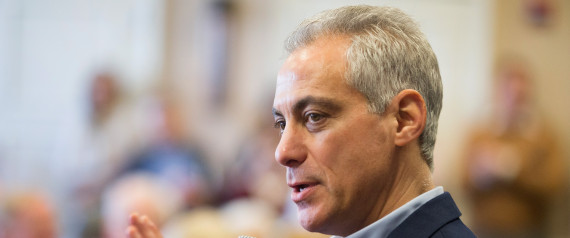
CHICAGO — Chicago Mayor Rahm Emanuel hopes to avoid being forced into a runoff when voters head to the polls today to decide whether to give the former White House chief of staff a second term.
Emanuel is poised to get the most votes after having raised millions of dollars, plastering the airwaves with ads and winning an endorsement from his former boss, President Barack Obama. The President’s endorsement is key to a potential boost to the election efforts of Mayor Emanuel, who is seeking to bolster his support among the city’s Black voters in order to capture more than 50 percent of the vote and avoid a runoff.
The key will be voter turnout. Already, early voting numbers – pushed by all the candidates – have bested 2011 levels, with a more than 20 percent increase despite a blast of cold weather.
Emanuel has campaigned on the idea that his tested leadership is what the city needs.
“You gave me a chance to make the tough decisions this city needed, and we’ve improved our schools, our infrastructure, and our public safety,” he told supporters in an email Monday. “But there’s more work to be done, and I’ll need your help to make sure we can continue the progress we’ve made.”
Emanuel is facing Cook County Commissioner Jesus Garcia, Alderman Bob Fioretti, businessman Willie Wilson and perennial candidate William Walls.
They’ve put Emanuel on the defensive over his handling of a contract dispute that led to Chicago’s first teachers’ strike in 25 years, the closing of nearly 50 neighborhood schools and a spike in violent crime. They have also criticized his sometimes-combative style.
“In Chicago neighborhoods, people are largely turned off,” Garcia said. “They have found him to be distant and uncaring, not really engaging in neighborhoods.”
But Emanuel has said he made decisions that helped the city and challenged the status quo. He’s countered claims by taking a neighborhood-focused approach to the campaign trail, including talking up his push to increase the city’s minimum wage, from $8.25 to $13 by 2019.
Also, today, Chicago voters will decide several hotly contested aldermanic races. Election officials hope turnout will match 2011 levels. Roughly 42 percent of eligible Chicago voters cast ballots that year, up from 33 percent in 2007.